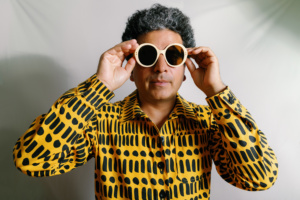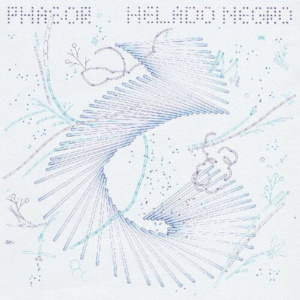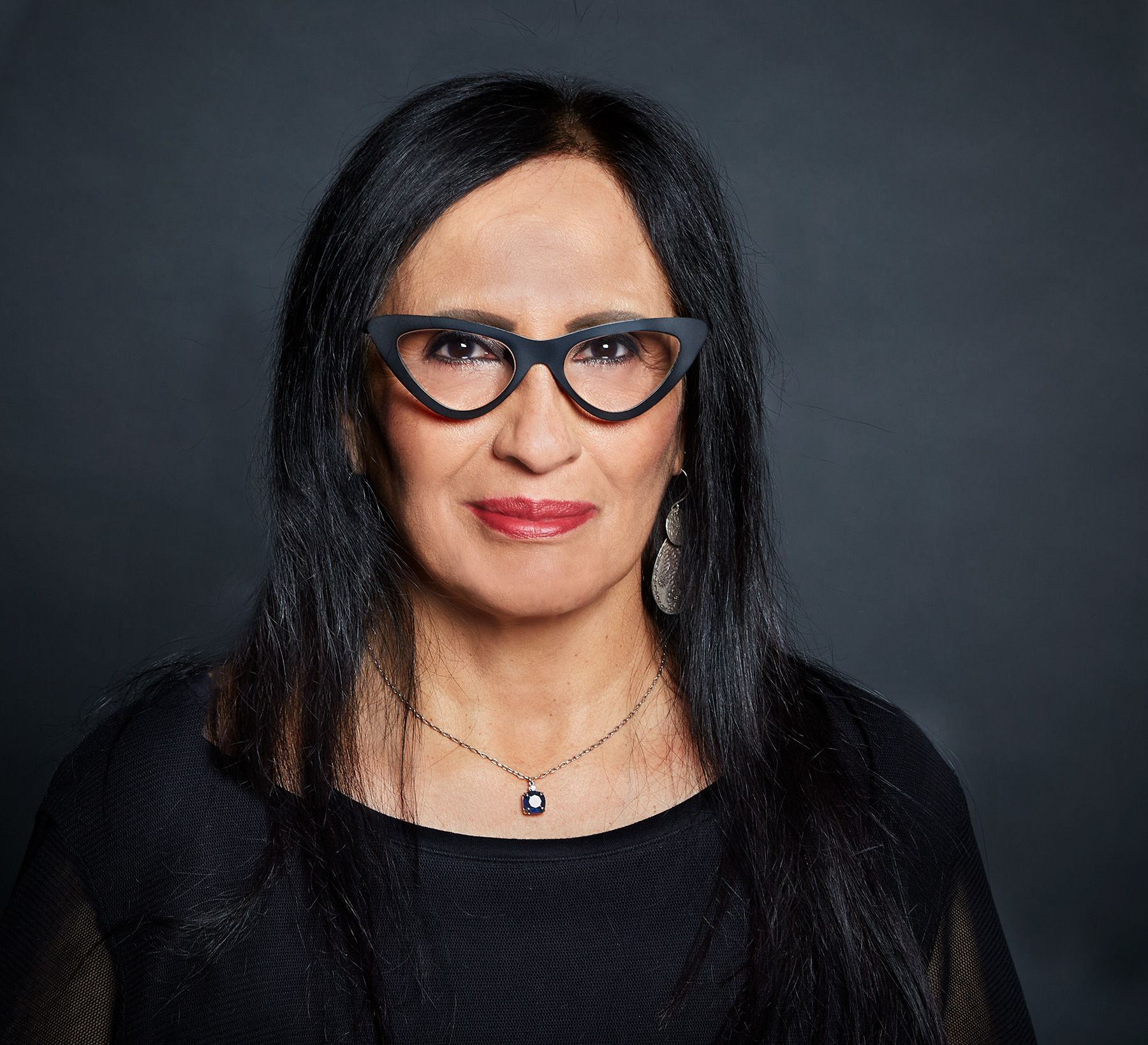Review: Helado Negro Makes Waves with Phasor

Waves transmit energy, pulling you in before pulling you under, be it the waves of the ocean, sound waves, or the wave hello (or goodbye) to your lover. Helado Negro’s eighth studio album Phasor is a study in waves.
Inspired by a birthday trip to Salvatore Matirano’s groundbreaking synthesizer (the SAL MAR Construction at the University of Illinois) and named for a synthesizer made for the Apple II in the late 70s, Phasor takes a playful approach to the manipulation of waves.
The SAL MAR Construction consists of 291 switches that can be manipulated manually or logically, meaning the musician and the machine work together to create an infinite number of sounds. A curious musician could have a field day; and it sounds like Helado Negro, né Roberto Carlos Lange, did. He took the inspiration: the ability to zoom in and see not just the roots of a song but the way those roots synthesize underground, so to speak, and used the recordings he made there as the foundation of Phasor.
“LFO (Lupe Finds Oliveros)” reinforces the relationship between man and machine. Lupe is Lupe Lopez a mid-century Fender employee whose amps have become collector’s items. Oliveros is Pauline Oliveros, the ambient music pioneer who developed a philosophy known as “deep listening”. “LFO” is an imagined meeting of the two who, though they may be part of two completely different scenes, represent an attention to detail and mastery of craft that can bring about a sort of transcendence in the listener; a grouping Lange could surely find himself in. “LFO” could just as easily stand for Low-Frequency Oscillator, a circuit that creates a frequency so low it’s out of the range of human hearing but augments what you do a direct link to his work with the SAL MAR. Lange’s vocals mimic this lower frequency with a much deeper voice than we typically hear from him, reinforcing the care inherent in such attention to detail.
 Lange also ate a lot of fish while making Phasor. I’m not being facetious: he really did, and it’s evident in the undulation of songs like “Colores del Mar” which is about wanting to get lost in the waves hoping that it brings you closer to being found. Near-drowning survivors often speak of the euphoria they experience before the waves overtake them, Phasor is that bright light before everything goes dark; it holds you tenderly, suspended in its energy until you’re ready to open your eyes again.
Lange also ate a lot of fish while making Phasor. I’m not being facetious: he really did, and it’s evident in the undulation of songs like “Colores del Mar” which is about wanting to get lost in the waves hoping that it brings you closer to being found. Near-drowning survivors often speak of the euphoria they experience before the waves overtake them, Phasor is that bright light before everything goes dark; it holds you tenderly, suspended in its energy until you’re ready to open your eyes again.
Phasor brings in a sense of deep longing but a hopeful one. Even the “sadness” of “What’s Best For You and Me”, a song about his parent’s divorce, is couched in an upbeat rhythm, like how your parents tell you they’re splitting up but then take you to get ice cream. The dreamy waves of the song make you wonder whether you’re sad for the end or yearning for it.
Phasor has managed to synthesize Lange’s seven previous albums with echoes of each throughout. Moments like the opening of “I Just Wanna Wake Up With You” bring you right back to the Island Universe Story(s), Lange’s 2016 work. Other tracks, like the focus on the drums and bass in “What’s Best For You and Me” feel like a nod to This is How You Smile (2019), giving you a beautiful encapsulation of his artistic evolution. And yet, Phasor still feels like home. Lange’s music has always felt like home, his voice the warm cup of tea that reminds you you’re safe, be it in your brown skin or your purple tones. Phasor is an exploration, an experiment in understanding the human experience. It’s a journey into the depths but also a call to come out into the open and feel the sun bring your body back to life.
Stay connected to KUVO’s programs and our community! Sign up for the Oasis E-News today!
Become a Member
Join the growing family of people who believe that music is essential to our community. Your donation supports the work we do, the programs you count on, and the events you enjoy.
Download the App
Download KUVO's FREE app today! The KUVO Public Radio App allows you to take KUVO's music and news with you anywhere, anytime!


